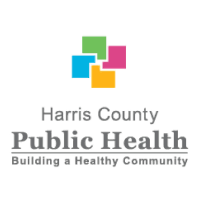
May is Mental Health Month
HOUSTON – Harris County Public Health (HCPH) is proud to join the national movement to raise awareness about mental health and well-being in observance of May as Mental Health Month. This year’s theme, “Promoting Wellness and Resilience,” emphasizes the importance of mental health as a critical component of overall health and encourages individuals to prioritize self-care and seek support when needed. The Behavioral Health Program and Maternal Mental Health Program at HCPH works to increase access to mental health services for Harris County’s residents in need of support.
According to the Centers for Disease Control and Prevention (CDC), mental health disorders affect millions of Americans each year. Recent statistics indicate that:
- Approximately 1 in 5 adults in the United States experience mental illness each year.
- Depression is the leading cause of disability worldwide and is a major contributor to the global burden of disease.
- Suicide is the 10th leading cause of death in the United States, with rates increasing in nearly every state over the past two decades.
It’s natural to feel stress, anxiety, grief, and worry during challenging times, experts say. However, strong emotions or excessive stress can have negative effects on your health. Stress can often be accompanied by the following:
- Feelings of fear, anger, sadness, worry, numbness, or frustration.
- Changes in appetite, energy, desires, or interests.
- Problems concentrating or making decisions.
- Nightmares or problems sleeping.
- Physical reactions, such as headaches, body pains, stomach problems, or skin rashes.
- Worsening of chronic diseases and mental health conditions.
- Overeating or not eating enough.
- Increased use of alcohol, illegal drugs, and misuse of prescription drugs (like opioids).
Healthy Ways to Cope with Stress
Learning healthy coping skills to combat stress will help you, the people you care about, and those around you to become more resilient. You can help yourself, others, and your community manage stress in the following ways:
- Mind your body:
- Eat plenty of fruits and vegetables, lean protein, whole grains, and fat-free or low-fat milk and dairy products. Eating well also means limiting saturated fats, cholesterol, salt, and added sugars.
- Go to bed at the same time each night and get up at the same time each morning, including on the weekends. Consistent sleep is important for focus, memory, and motivation.
- Move more and sit less. Try to walk a little more each day — every little bit of physical activity helps.
- Take deep breaths, stretch, or meditate. Start by learning a new breathing technique or grounding exercise.
- Limit alcohol intake. Choose not to drink, or drink in moderation.
- Avoid using prescription drugs in ways other than prescribed, taking someone else’s prescription, or using illegal drugs.
- Avoid smoking and the use of other tobacco and nicotine products.
- Stay up to date on your vaccines, including the updated COVID-19 booster.
- Get regular medical physicals, tests, and screenings, especially those for cancer.
If you or someone you know needs mental health services, contact the Substance Abuse and Mental Health Services Administration’s national helpline at 1-800-662-HELP. You can also call, text, or chat 988 to connect with a trained counselor through the National Suicide Prevention Lifeline.
HCPH has Maternal Mental Health services available for birthing persons and their families, focusing on those struggling with Perinatal Mood and Anxiety Disorders (PMADs). This includes obsessive-compulsive disorder (OCD), anxiety, depression, post-traumatic stress disorder (PTSD), and postpartum psychosis. Call 832-927-1335 or email MaternalMentHlthPrgm@phs.hctx.net to inquire about our services. For more information, visit our Maternal Mental Health page. Additionally, HCPH will expand our Behavioral Health Services program in Summer 2024. Visit the Behavioral Health Services page to find out more.

